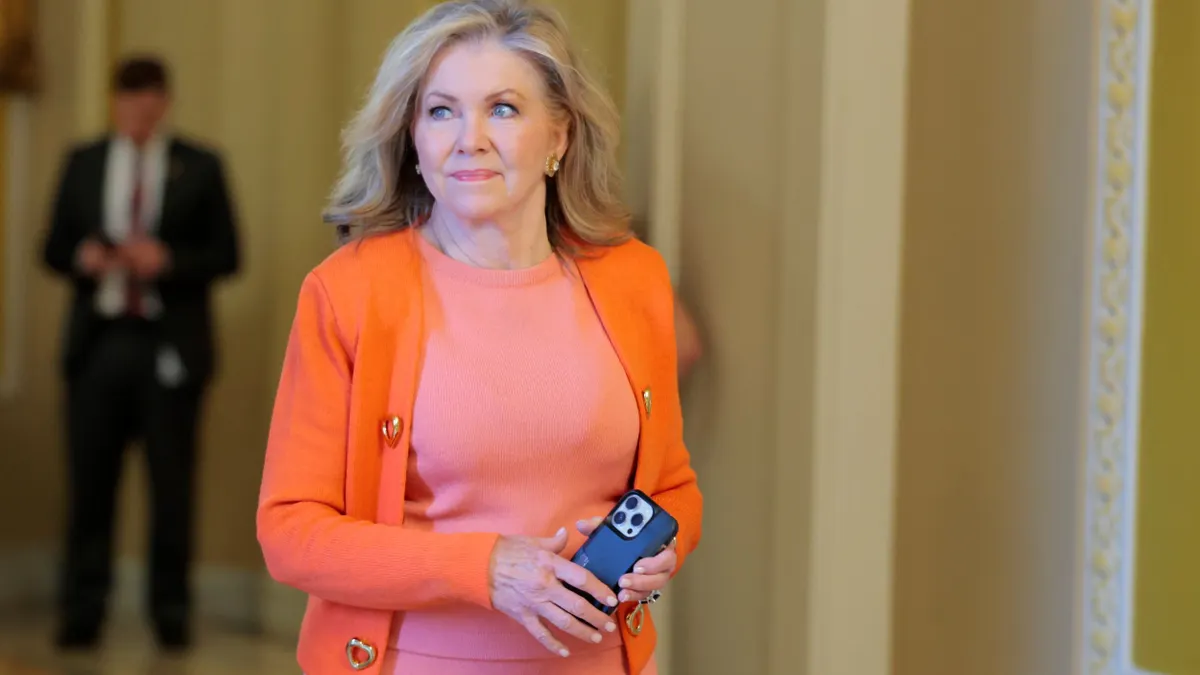Joseph Haslag, professor of economics at the University of Missouri—Columbia, pays attention to the potential economic impact of the novel coronavirus. As to which aspects of the coronavirus will drive the most significant financial impact, Haslag doesn’t think you can point to just one, but he has a few predictions.
Haslag directs the MU Economic Policy Analysis and Research Center, and has spent 12 years in the research department of the Federal Reserve Bank in Dallas. He spoke with CFO Dive Wednesday about the approaching impacts of the virus, and how best to manage wealth in advance.
"The first impact will be loss of production, from companies that gather people together in one place to produce goods and services," he said. "As soon as that happens, soon as production slows, sales will slow, and that’s where the banking industry, I think, will begin to feel their first difficulties and challenges."
Haslag expects some loans or payments will get delayed, or deferred, or the debts will be canceled. "The U.S. is still taking the approach that this will be a relatively short term event, and that by summer, we’ll be back, rebuilding whatever lost production had been undertaken," he said.
Investors and executives continue to react to the spread of the coronavirus, which the WHO classified as a pandemic Wednesday. As more employees prepare to work from home and more large corporations attempt to home in on crisis planning, the need for information and strategy continues to grow.
"I think it will be a real negative shock to the economy," he said, noting that in February, employment numbers were "quite strong." That upwards trajectory has now provided us with "some wiggle room," so we won’t necessarily be faced with a "full-blown recession," which Haslag thinks we’ll probably avoid if the spread is short-lived and containment is effective.
The strong labor market may also cushion the blow during a potential slowdown, he said. Labor markets understand layoffs and temporary curtailments. But, Haslag warns, there will be a great deal of economic disinformation in the next four to six weeks.
If labor is helping meet growing demand, what happens if demand drops off? Alternatively, if demand sustains itself, what will happen if companies can't meet the production due to their employees’ inability to work their shifts? Haslag says these are equilibrium outcomes, and appear to him to be more like a productivity shock than aggregate demand shock.
"This [will] affect supply and demand on both sides," he said. "We want to focus on equilibrium outcomes: things resulting in less employment, less income, less sales in the short term, not just an ever-evolving shift. This is not an aggregate demand story."
As it stands, Haslag finds it "nearly impossible" to predict which companies will emerge from the pandemic stronger than ever. "It’ll be a broad-based impact,” he said. "Everybody’s going to feel some pain. It’s not just a segment of the stock market going down."
Government bail-outs or intervention may be similarly out of reach. Haslag predicts the government, at best, will mitigate the consequences of high-frequency flow problems.
"In other words, if plants shut down, they can’t pay people for a few weeks. And the effects of that will spread through every aspect of the U.S. economy. [Helping] people make their regular payments on what they need to get through this tight spot is likely the best the government can do, but they can’t force people to go to work."
On the micro level, prudence and careful forethought is key for business leaders hoping to guide their enterprises through the pandemic.
"My guess is that the companies to come out of this the strongest are the ones already thinking their way through, and trying to plan," Haslag said. "The only question that’s outside their control is how long this is going to last. And the science is just not there yet for us to know."




















